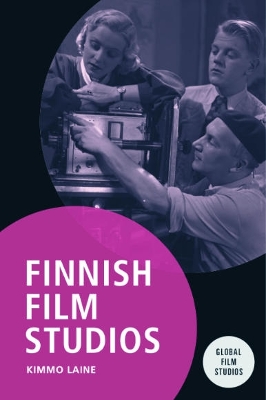Global Film Studios
1 total work
Provides the first scholarly examination of Finnish studio system
Provides an approach that is both sensitive to the specific characteristics of Finnish studio system and applicable to small nation cinema industries in general
Considers practically the whole output of Finnish film companies over the studio era; this is a benefit of analysing a small nation cinema with c. 600 feature films made between the 1930s and early 1960s
Explores films such as Stolen Death (1938), The Way You Wanted Me (1944), The White Reindeer (1952), The Glass Heart (1959)
Finnish Film Studios provides a thorough examination of Finnish film industry through the core decades of the studio era, from the early 1920s to the early 1960s. Laine analyses the contributions of fully integrated major companies, Suomi-Filmi, Suomen Filmiteollisuus and Fennada-Filmi, in addition to minor companies and independent producers that were responsible for some of the canonized work of the studio era, including the films of Teuvo Tulio and Nyrki Tapiovaara.
This study approaches Finnish studio cinema as both typical and particular: it is a typical European small nation cinema with its industrial structures, reliance on hierarchical organisation of labour and love-hate relationship with Hollywood; yet, it is particular, not only in its genres, cycles and hugely popular domestic stars, but also because films were made in the constant presence of geopolitical realities, at times under the influence of Germany and the Soviet Union.
Provides an approach that is both sensitive to the specific characteristics of Finnish studio system and applicable to small nation cinema industries in general
Considers practically the whole output of Finnish film companies over the studio era; this is a benefit of analysing a small nation cinema with c. 600 feature films made between the 1930s and early 1960s
Explores films such as Stolen Death (1938), The Way You Wanted Me (1944), The White Reindeer (1952), The Glass Heart (1959)
Finnish Film Studios provides a thorough examination of Finnish film industry through the core decades of the studio era, from the early 1920s to the early 1960s. Laine analyses the contributions of fully integrated major companies, Suomi-Filmi, Suomen Filmiteollisuus and Fennada-Filmi, in addition to minor companies and independent producers that were responsible for some of the canonized work of the studio era, including the films of Teuvo Tulio and Nyrki Tapiovaara.
This study approaches Finnish studio cinema as both typical and particular: it is a typical European small nation cinema with its industrial structures, reliance on hierarchical organisation of labour and love-hate relationship with Hollywood; yet, it is particular, not only in its genres, cycles and hugely popular domestic stars, but also because films were made in the constant presence of geopolitical realities, at times under the influence of Germany and the Soviet Union.
